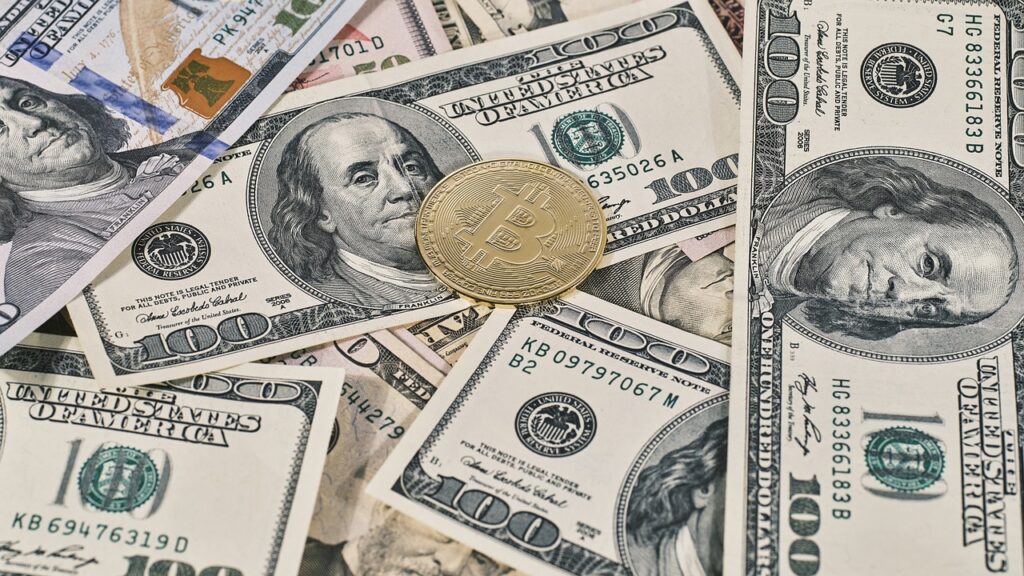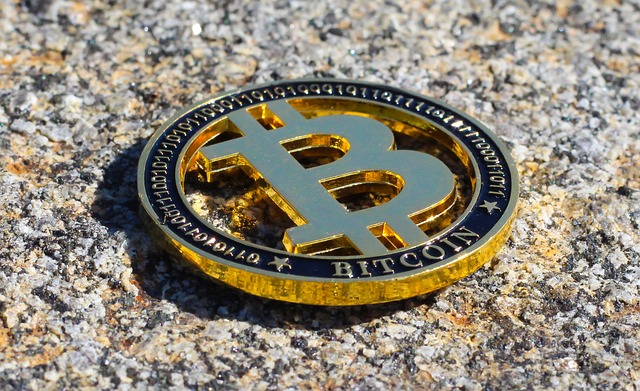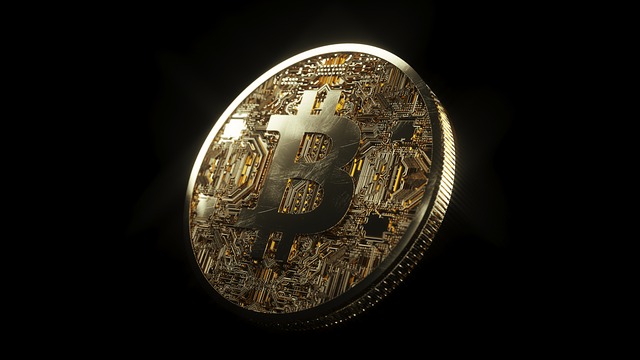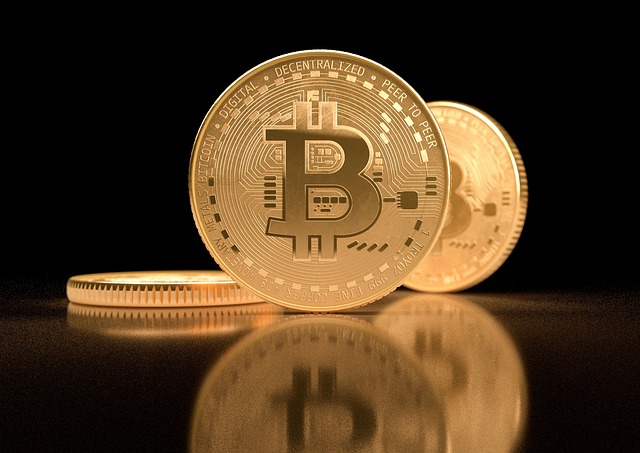Decentralized Finance Technology: A Year of Innovations and Progress
Decentralized Finance Technology: A Year of Innovations and Progress

The Rise of DeFi: Exploring the Evolution of Financial Technology
The rise of DeFi, short for decentralized finance, has quickly gained momentum as a groundbreaking evolution in the world of financial technology. Traditional finance institutions are now being challenged by new decentralized platforms that aim to redefine the way we transact, invest, and access financial services.
One of the key drivers behind the evolution of DeFi is the concept of smart contracts. These self-executing contracts are built on blockchain technology and enable trustless transactions without the need for intermediaries. With smart contracts, financial agreements can be automatically executed based on predefined conditions, eliminating the need for manual intervention and reducing the risk of human error. This innovation has opened up a world of possibilities, from peer-to-peer lending and borrowing to yield farming and liquidity mining, providing individuals with a greater degree of control over their financial assets.
Unlocking New Possibilities: How DeFi is Revolutionizing Traditional Finance
Decentralized finance (DeFi) has emerged as a revolutionary force in the traditional finance industry, unlocking new possibilities that were previously unimaginable. By leveraging blockchain technology and smart contracts, DeFi applications are transforming the way financial transactions are conducted, ensuring transparency, security, and efficiency. From borrowing and lending to asset management and trading, DeFi offers a wide range of decentralized solutions that empower individuals to take control of their financial lives.
One of the key ways in which DeFi is revolutionizing traditional finance is through its ability to provide financial services to the unbanked and underbanked populations. In many parts of the world, access to basic financial services is limited, leaving millions of people excluded from the formal economy. DeFi protocols, on the other hand, operate on a global scale and can be accessed by anyone with an internet connection. This inclusivity enables individuals to participate in various financial activities, such as accessing loans, earning interest on their assets, or even engaging in yield farming. By eliminating the need for intermediaries, DeFi empowers individuals and promotes financial inclusion on a global scale.
The Power of Smart Contracts: A Game-Changer for Decentralized Finance
Decentralized finance, also known as DeFi, has been making waves in the world of finance, and one of the key elements driving this revolution is the power of smart contracts. Smart contracts are self-executing contracts that are executed automatically once predetermined conditions are met. They are built on blockchain technology, which ensures transparency, security, and immutability.
What makes smart contracts a game-changer for decentralized finance is their ability to eliminate the need for intermediaries in financial transactions. Traditional financial systems often rely on intermediaries such as banks, lawyers, or brokers to oversee and enforce contracts. However, with smart contracts, these intermediaries are no longer necessary. Instead, the terms of the contract are encoded in the blockchain, and the contract is automatically executed without the need for any middlemen. This not only speeds up transaction times but also reduces the costs associated with traditional financial services.
From Peer-to-Peer Lending to Yield Farming: Exploring DeFi Investment Opportunities
Decentralized Finance (DeFi) has opened up a world of exciting investment opportunities, transforming traditional lending practices into an innovative and lucrative ecosystem. One of the most popular investment options within DeFi is peer-to-peer lending. Unlike traditional lending platforms, DeFi enables individuals to lend their digital assets directly to borrowers, eliminating the need for intermediaries like banks. This peer-to-peer lending model not only allows lenders to earn passive income through interest rates but also provides borrowers with easier access to much-needed funds. With DeFi lending platforms becoming increasingly user-friendly and secure, more and more individuals are realizing the potential of this investment avenue to diversify their portfolios and generate consistent returns.
Another intriguing investment opportunity emerging in the DeFi space is yield farming, also known as liquidity mining. Yield farming involves earning rewards by providing liquidity to decentralized exchanges or lending platforms. In simple terms, individuals lock up their digital assets in smart contracts and, in return, receive additional tokens as a reward. These rewards can be in the form of the project’s native token or a different token altogether. Yield farming enables investors to make the most of their digital assets by putting them to work while earning additional tokens in the process. However, it’s important to note that yield farming comes with its own set of risks, including impermanent loss and smart contract vulnerabilities, which investors should consider before diving in. Nonetheless, for those willing to do their research and carefully assess the risks involved, yield farming can be a highly profitable investment strategy in the realm of DeFi.
The Role of Stablecoins in DeFi: Bridging the Gap Between Traditional and Digital Currencies
Stablecoins have emerged as a crucial component in the world of decentralized finance (DeFi), effectively bridging the gap between traditional and digital currencies. Unlike volatile cryptocurrencies such as Bitcoin and Ethereum, stablecoins offer a stable value by pegging their worth to existing fiat currencies like the US Dollar or the Euro. This stability allows users to engage with DeFi platforms without the fear of major price fluctuations, providing a sense of security and familiarity that traditional financial systems offer. By introducing stablecoins into the DeFi ecosystem, individuals can easily convert their fiat currencies into digital assets, opening up a world of possibilities for seamless and efficient transactions.
One of the key benefits of stablecoins in DeFi is the ability to facilitate borderless transactions and financial inclusion. Traditional banking systems often impose high fees and lengthy transaction times when it comes to cross-border transfers. However, stablecoins can be instantly transferred across the globe without any intermediaries or lengthy processing times. This not only enables individuals in underserved regions to access global financial markets, but it also empowers them to participate in saving, investing, and borrowing activities that were previously out of reach. Furthermore, stablecoins eliminate the need for individuals to rely on volatile local currencies, providing a more stable and reliable medium of exchange for daily transactions. The widespread adoption of stablecoins in DeFi has the potential to truly revolutionize how individuals across the globe interact with money, breaking down barriers and creating a more inclusive and accessible financial system.
Diving Into Decentralized Exchanges: The Future of Trading without Intermediaries
Decentralized exchanges (DEXs) have emerged as a significant force in the world of cryptocurrency trading. Unlike traditional exchanges, which rely on intermediaries to facilitate transactions, DEXs operate on a peer-to-peer network, allowing users to directly trade digital assets with one another. This eliminates the need for intermediaries, such as brokers or custodians, and empowers individuals to have greater control over their assets.
One of the key advantages of decentralized exchanges is their enhanced security.

The future of trading is undoubtedly being shaped by decentralized exchanges. As more individuals recognize the benefits of trading without intermediaries, DEXs are likely to witness increased adoption and growth. Furthermore, the development of innovative features, such as liquidity pools and automated market-making algorithms, is making decentralized exchanges more efficient and user-friendly. With their potential to democratize the financial landscape and empower individuals with greater control over their assets, it is clear that decentralized exchanges will continue to disrupt the traditional finance space in the years to come.
NFTs and DeFi: Exploring the Intersection of Digital Art and Financial Innovation
In recent years, we have witnessed a significant rise in the popularity of NFTs (Non-Fungible Tokens) and their intersection with DeFi (Decentralized Finance). NFTs are unique digital assets that are stored on a blockchain, making them verifiable and impossible to duplicate. These tokens have opened up a whole new world for digital artists, enabling them to monetize their work in ways previously unimaginable. Through DeFi platforms, artists can now tokenize their art and sell it directly to buyers, removing the need for intermediaries such as galleries or auction houses.
One of the main advantages of NFTs in the world of DeFi is the potential for artists to earn ongoing royalties every time their art is resold. Traditionally, artists would sell their work once and not benefit financially from subsequent sales. However, with NFTs and smart contracts, artists can now program their artwork to automatically receive a percentage of the sale price whenever it changes hands. This has immense implications for artists, as it allows them to generate passive income and establish a long-term relationship with their buyers. Additionally, this provides transparency and trust in the art market, as the ownership of each NFT can be easily verified on the blockchain.
The Challenges and Opportunities of DeFi Security: Protecting Assets in the Decentralized World
In the decentralized world of decentralized finance (DeFi), the challenges and opportunities around security are paramount. With the absence of intermediaries and the reliance on smart contracts, protecting assets becomes a critical concern for individuals venturing into the DeFi space. DeFi operates on the principles of transparency and trustlessness, which means that individuals have full control over their funds but also bear the responsibility of safeguarding them.
One of the main challenges of DeFi security lies in the vulnerability of smart contracts. While smart contracts have revolutionized the financial industry by automating processes and removing the need for intermediaries, they are not immune to flaws and vulnerabilities. Any bug or coding error in a smart contract can be exploited by malicious actors, potentially resulting in massive losses for individuals. Therefore, paramount attention must be given to auditing and testing smart contracts before they are deployed in the DeFi ecosystem. Additionally, continuous monitoring and regular security audits are necessary to detect and mitigate any vulnerabilities that may arise over time.
DeFi Lending and Borrowing: Empowering Individuals with Access to Global Financial Markets
Decentralized Finance (DeFi) lending and borrowing is transforming the way individuals perceive and engage with global financial markets. With traditional financial institutions often imposing barriers such as stringent eligibility criteria and lengthy approval processes, accessing credit or investment opportunities was challenging for many. However, DeFi is breaking down these barriers and democratizing the financial landscape.
In the world of DeFi, peer-to-peer lending platforms enable individuals to lend and borrow funds directly from one another, eliminating the need for intermediaries. This not only makes the lending and borrowing process more efficient but also reduces costs and opens up opportunities for individuals from all walks of life. Through smart contracts and blockchain technology, borrowers can leverage their assets as collateral and receive loans instantly, without the need for lengthy paperwork or credit checks. Similarly, lenders can earn competitive returns by providing liquidity to the market. Overall, DeFi lending and borrowing is empowering individuals to take control of their finances and participate in global financial markets on their terms.
Note: The article does not have a conclusion as it is an ongoing exploration of the topic.
The Road Ahead: Forecasting the Future of Decentralized Finance Technology
With the rapid growth and adoption of decentralized finance (DeFi), the future of this technology looks promising. We can expect to see continued innovation and advancements in various aspects of DeFi, including lending and borrowing, decentralized exchanges, and asset management.

One of the key areas that will likely shape the future of DeFi is scalability. As the number of users and transactions on DeFi platforms increases, scalability becomes essential to ensure smooth operations and efficient processing. Layer 2 solutions, such as sidechains and state channels, are already being explored to address this challenge. These solutions aim to enhance scalability by processing transactions off-chain and only settling the final results on the main blockchain. With improved scalability, DeFi platforms will be able to handle a larger volume of transactions, attract more users, and provide a seamless experience.
What is decentralized finance (DeFi)?
DeFi refers to a new approach to financial systems that operates on blockchain technology, eliminating the need for intermediaries like banks. It allows for peer-to-peer transactions and offers various financial services in a decentralized manner.
How is DeFi revolutionizing traditional finance?
DeFi is bringing about a revolution in traditional finance by enabling individuals to access financial services without the need for a centralized authority. It promotes financial inclusion, offers lower transaction fees, and provides greater transparency and security.
What role do smart contracts play in DeFi?
Smart contracts are self-executing contracts with predefined rules encoded within them. In DeFi, they enable automated and trustless transactions, cutting out intermediaries and reducing the chance of fraud or manipulation.
What are some investment opportunities in DeFi?
DeFi offers various investment opportunities, such as peer-to-peer lending, yield farming, and liquidity provision. These allow individuals to earn interest or rewards by providing their assets to the decentralized finance ecosystem.
How do stablecoins bridge the gap between traditional and digital currencies in DeFi?
Stablecoins are cryptocurrencies that are pegged to a stable asset, such as a fiat currency. They provide stability within the volatile cryptocurrency market and make it easier to transition between traditional and digital currencies within DeFi.
What is the future of trading without intermediaries in DeFi?
Decentralized exchanges (DEXs) are the future of trading without intermediaries in DeFi. These platforms allow users to trade directly with each other, removing the need for a centralized exchange. This enables faster transactions, lower fees, and greater control over assets.
How are NFTs and DeFi intersecting in the world of digital art?
NFTs (Non-Fungible Tokens) and DeFi are intersecting in the world of digital art by enabling artists to tokenize and sell their artwork directly to buyers. DeFi platforms provide liquidity and trading opportunities for these NFTs, creating new avenues for artists to monetize their work.
What are the challenges and opportunities in ensuring security in DeFi?
Security is a significant concern in the decentralized finance space. While DeFi offers transparency and immutability, it is also susceptible to hacking and exploits. However, this presents opportunities for the development of robust security solutions and auditing mechanisms to protect assets and ensure trust in the ecosystem.
How does DeFi empower individuals with access to global financial markets?
DeFi enables individuals to participate in global financial markets without the need for a traditional intermediary. It allows for borderless transactions, greater financial inclusion, and access to a wide range of financial services, regardless of geographical location or socioeconomic status.
What does the future hold for decentralized finance technology?
The future of decentralized finance technology looks promising.

Todays Featured Product:
Buy, exchange and grow your crypto securely with a Ledger hardware wallet, combined with the Ledger Live app. It’s never been easier to keep your crypto safe and accessible. Buy direct from Ledger.com and get todays Special Offers Here.




